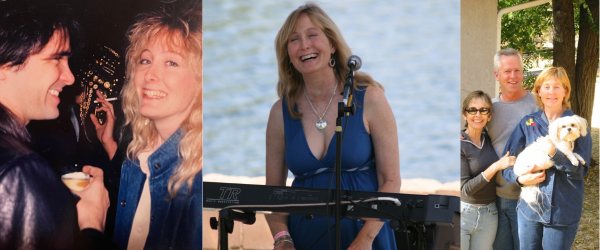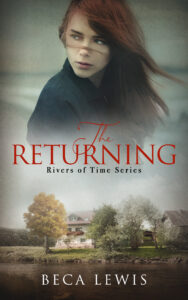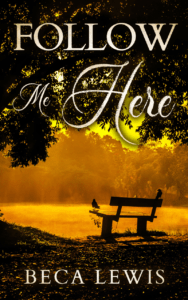Let go, celebrate life, and allow joy.

I didn’t notice how hard my year had been until I started on the final edit of my book, Follow Me Here.
It all started last May, my favorite month of the year. Behind the scenes of everyday life, I would discover what grief feels like.
It began on Mother’s Day. A loved one stopped talking to me and my sister that day.
I didn’t know why. All I knew was that it felt as if a knife had sliced down and cut my life in half. Grief filled me. I accepted that I had done something wrong, but I didn’t know what it was, and although I tried to fix it, I couldn’t.
At the same time, my sister and I were preparing to move our mother out of her apartment into an assisted living situation. It was at her request, but it was still difficult.
My sister and I were charged with going through every single possession of our mother’s and doing something with it. The only good thing we saw about it was that we did it together, and Mom was alive.
“Think how much harder it would be if she weren’t,” we would say as we made one more hard decision after another.
Months later, my mother passed away. More grief. Some of it was because my mother and I had never had an easy relationship, and although I tried to be the daughter she wanted, I never fully succeeded, and I wished I had done more.
My sister assured me I had done everything possible, and my heart eased a little. She also reminded me that, as a writer, in my mother’s eyes, I had succeeded, and that made us both happy.
A few months later, my sister, who had always been my biggest supporter, fan, and the only person who knew all my mistakes and joys, got sick.
And then I lost her. And grief became a tsunami that periodically arrives when I least expect it.
Yes, I know she isn’t gone. I know she and my parents are off gallivanting all over the reality they live in now, and the essence of her is still with me.
But she is no longer a phone call away, nor will her beloved face show up in a class I am teaching. I won’t be listening to her sing or hugging her at the next gathering.
And I grieve for my family, her husband, and her friends who lost a woman who brought harmony into every life she touched.
All of this happened while I was writing a book about a woman who loses her husband, goes into mourning for eleven years, and finally, with the help of friends and family, wakes up to live life out loud.
Did I know I would write that book during those three leavings?
No. But as I edited the book, I saw those three grief moments buried inside the book, and I was glad that was the book that called me to write it when it did.
I understand even more clearly now that grief is for what used to be and is no longer and for what could have been but won’t be.
And after all these years of writing about perception, I know that grief is also about learning to let go of what we wish could be and let in the happiness that is present for us now.
Even though it’s been almost thirty years, my mentor, whom I miss every day, told me that God is Joy. And we must let joy overcome sorrow, even when it’s hard.
Because in joy, we rest and rejoice, knowing that all is well and nothing is ever lost. Especially love.
The lesson is to let go, celebrate life, and allow joy—if God is omnipresent, then so is joy—to expand until it washes away the human personality’s need for grief and becomes grateful instead that Life is eternal.

We always signed off letters and notes to each other as Best Sister Ever. Now I get the last word. At least for now.

 BECA LEWIS coaches, teaches, writes blogs and books, plays with art, and is addicted to reading. She lives in Ohio with her husband and has kids and grandkids scattered across the country.
BECA LEWIS coaches, teaches, writes blogs and books, plays with art, and is addicted to reading. She lives in Ohio with her husband and has kids and grandkids scattered across the country.






